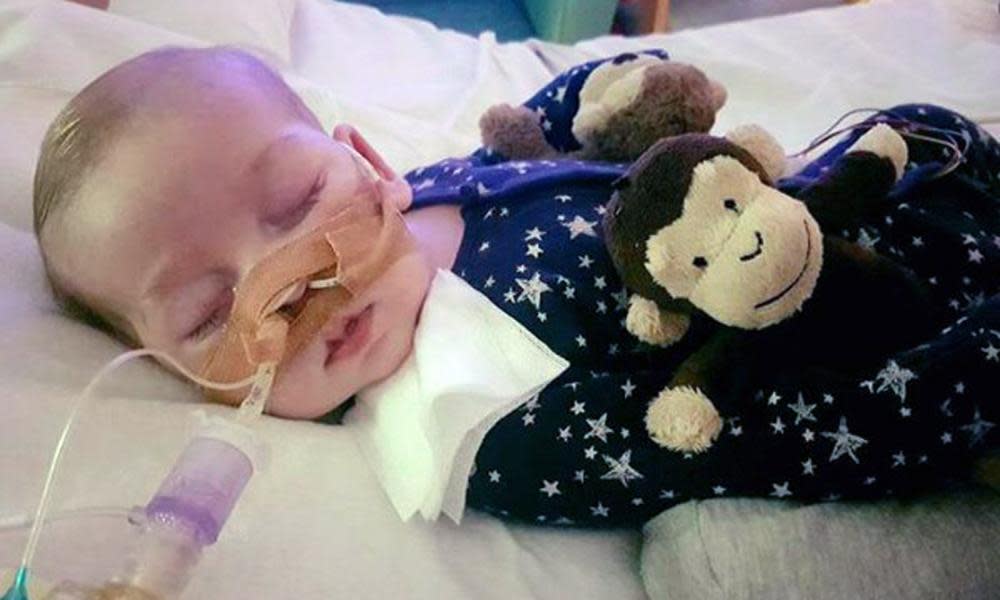Charlie Gard: European court rejects plea to intervene in life-support fight

The European court of human rights has rejected an appeal by the parents of a critically ill baby that he should be allowed to undergo experimental treatment in the US.
The decision by the Strasbourg court closes off the last legal avenue of appeal for the family of Charlie Gard and follows a similar ruling by the UK’s supreme court.
The judgment also lifts a court order under which doctors at Great Ormond Street hospital in London had been required to maintain life support treatment for the 10-month-old child who has brain damage and a rare genetic condition.
The hospital said it would not “rush .... to change Charlie’s care” and that any alteration to his current treatment would “involve careful planning and discussion”.
In a statement, the ECHR said it had, by a majority of the seven judges who considered the written arguments, declared the application inadmissible. It “endorsed in substance the approach” taken by the British courts and declared “the decision is final”.
It added: “Consequently, the court also considered that it was appropriate to lift the interim measure.” That measure required doctors to continue providing life support treatment for Charlie.
The infant’s parents, Chris Gard and Connie Yates, from Bedfont in west London, had asked the courts to consider whether it would be in the best interests of their son to undergo experimental treatment in the US.
British courts have already concluded that it would be lawful for the hospital to withdraw life sustaining treatment because it was likely Charlie would suffer significant harm if his suffering was prolonged without realistic prospect of improvement. The experimental therapy, the courts maintained, would produce no effective benefit.
Gard and Yates, who are in their 30s, have launched a fundraising appeal to help pay for doctors’ bills in the US. It reached a £1.2m target before the initial high court trial. That figure has now topped £1.3m, consisting of more than 83,000 donations.
At the supreme court hearing, the family’s lawyer, Richard Gordon QC, told judges: “The issue is whether the state has the power to intrude on decisions the parents have made in order to mandate that child’s death before it might come to an end. These are model parents trying to do all they possibly can for the benefit of their child. Their view on what is best for Charlie differs from the court.”
The European judges said it was “not for the court to substitute itself for the competent domestic authorities”. British court judgments in the case had been “meticulous”, the ECHR noted.
It said: “The domestic courts had concluded, on the basis of extensive, high-quality expert evidence, that it was most likely Charlie was being exposed to continued pain, suffering and distress and that undergoing experimental treatment with no prospects of success would offer no benefit, and continue to cause him significant harm.”
The seven judges who heard the case included the British judge at Strasbourg, Tim Eicke. The law firm retained by the family for the appeal, Harris da Silva Solicitors, said it could not comment immediately on the ECHR decision.
Responding to the judgment, a spokesperson for Great Ormond Street Hospital for Children NHS foundation trust said: “Our thoughts are with Charlie’s parents on receipt of this news that we know will be very distressing for them.
“Today’s decision by the European court of human rights marks the end of what has been a very difficult process and our priority is to provide every possible support to Charlie’s parents as we prepare for the next steps.
“There will be no rush by Great Ormond Street hospital to change Charlie’s care and any future treatment plans will involve careful planning and discussion.”

 Yahoo News
Yahoo News 
